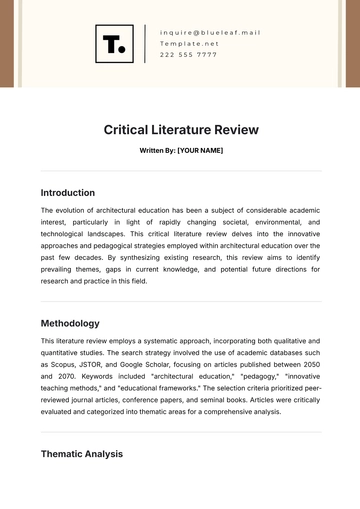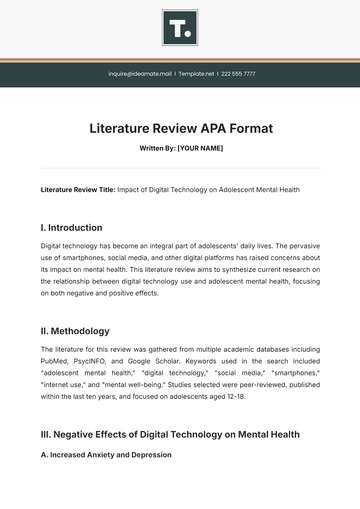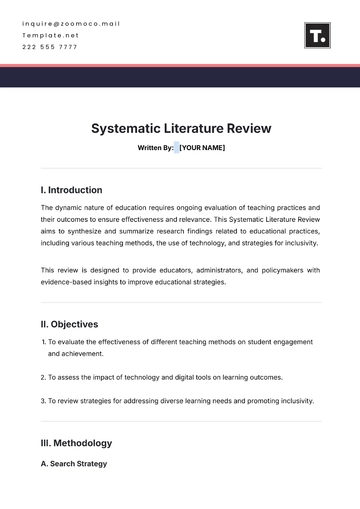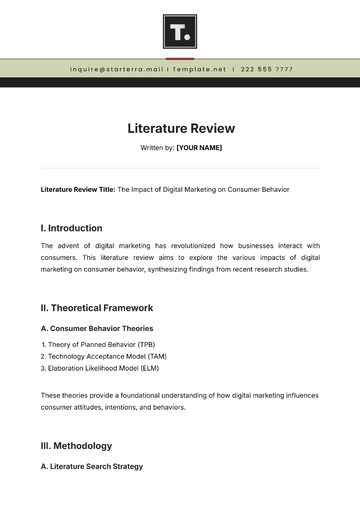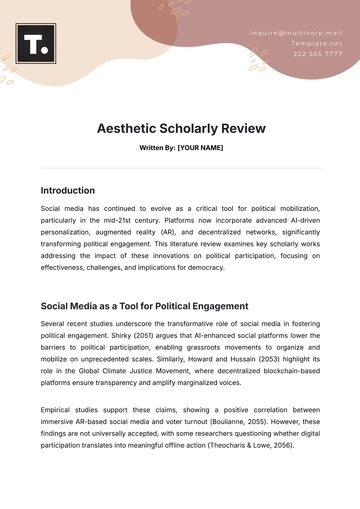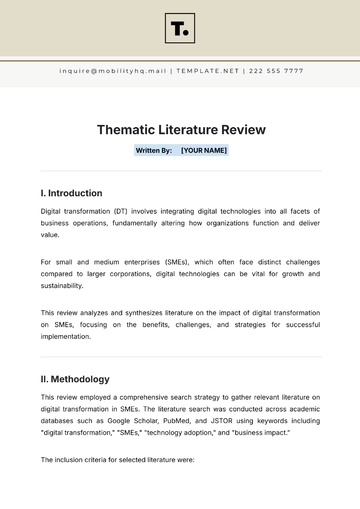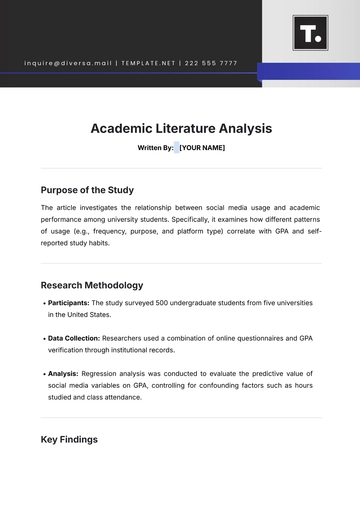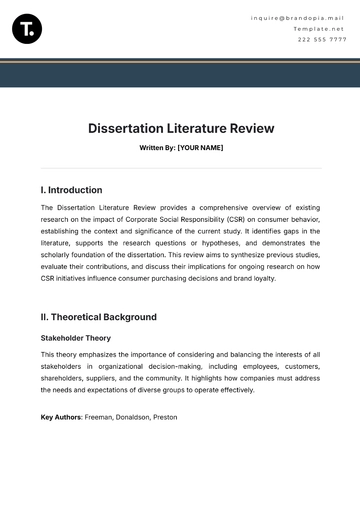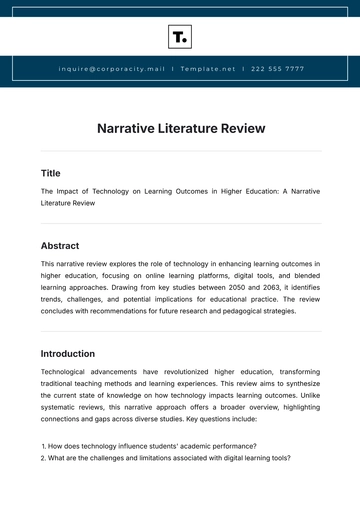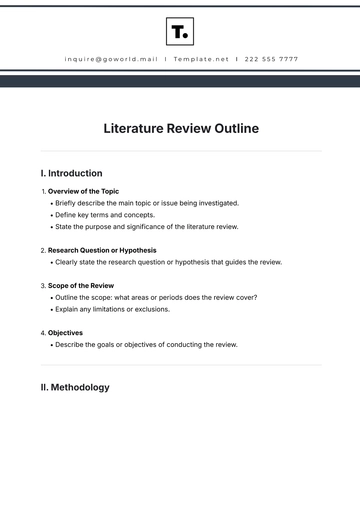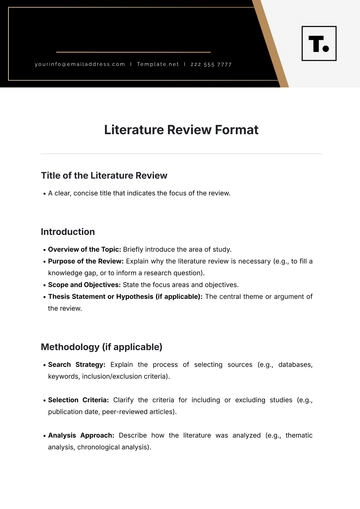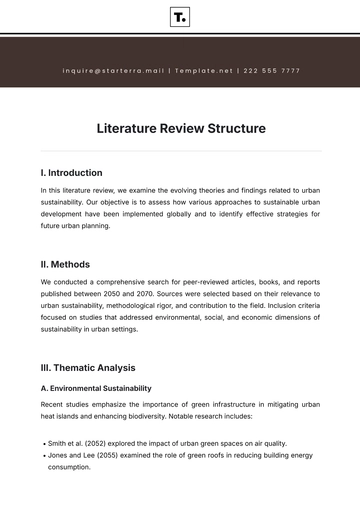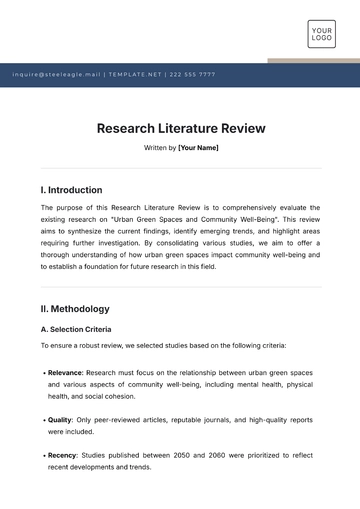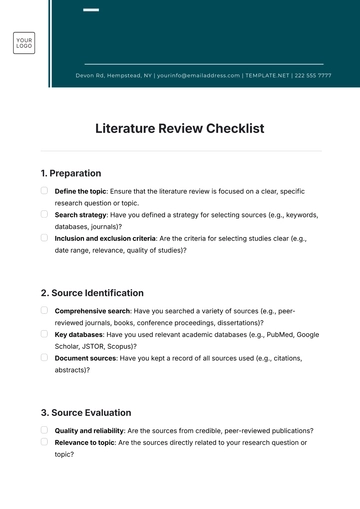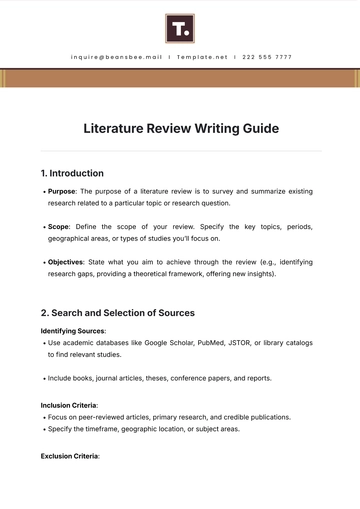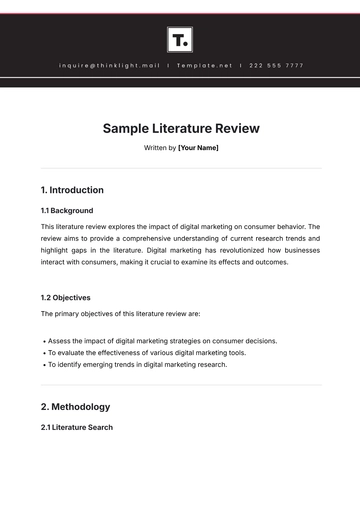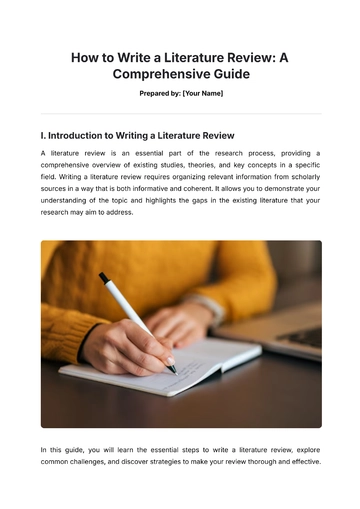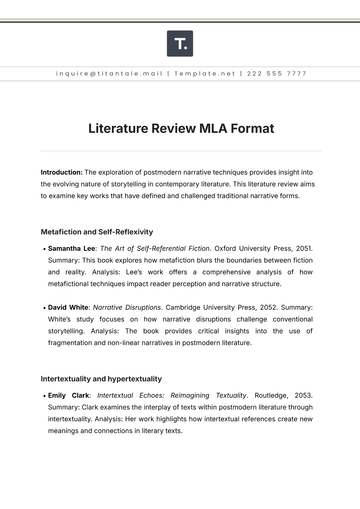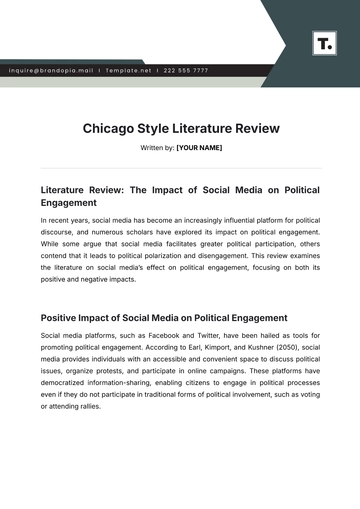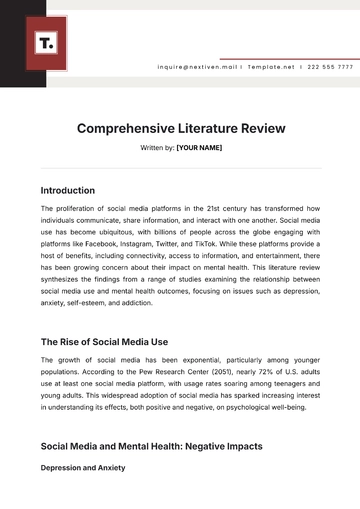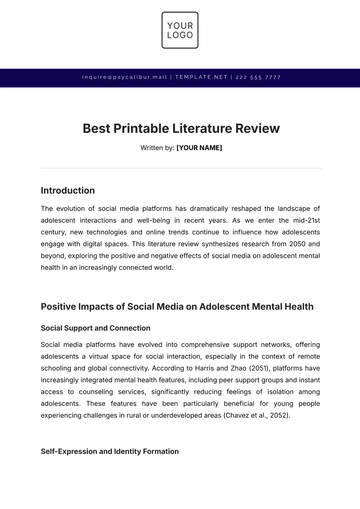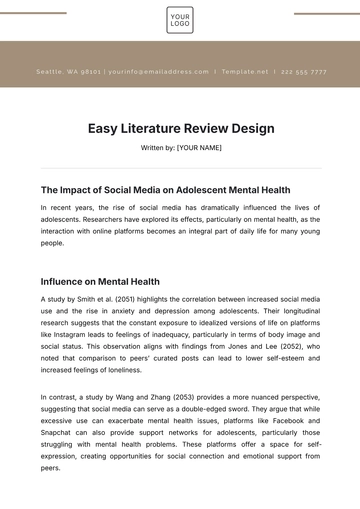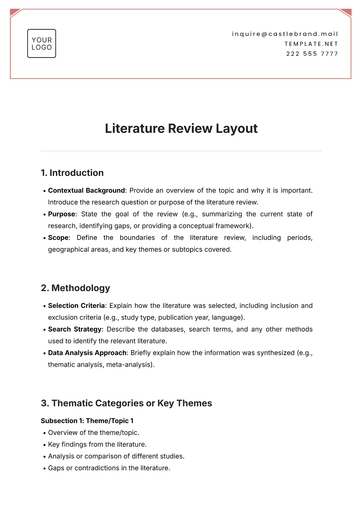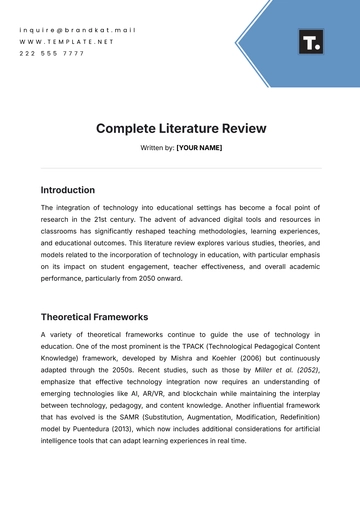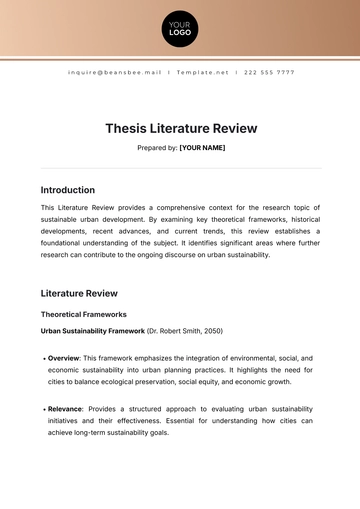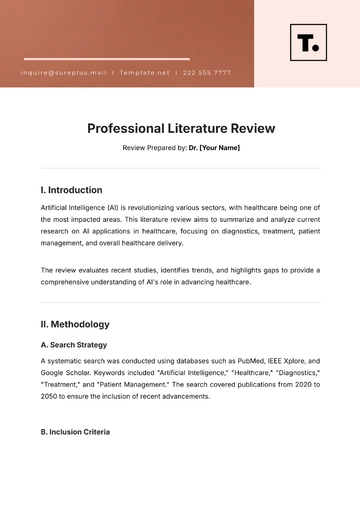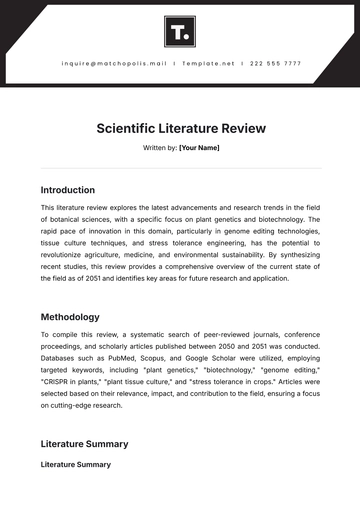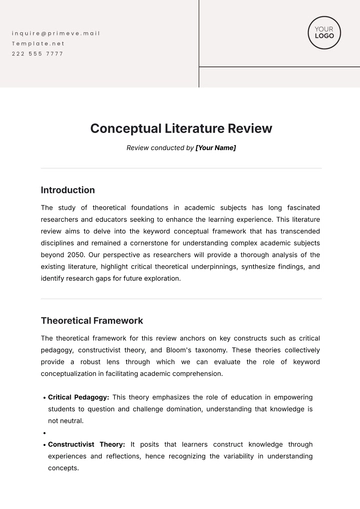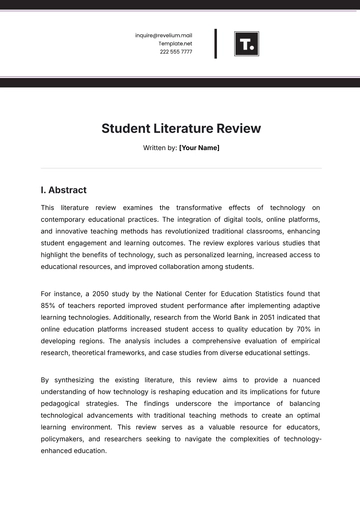Free Comprehensive Literature Review
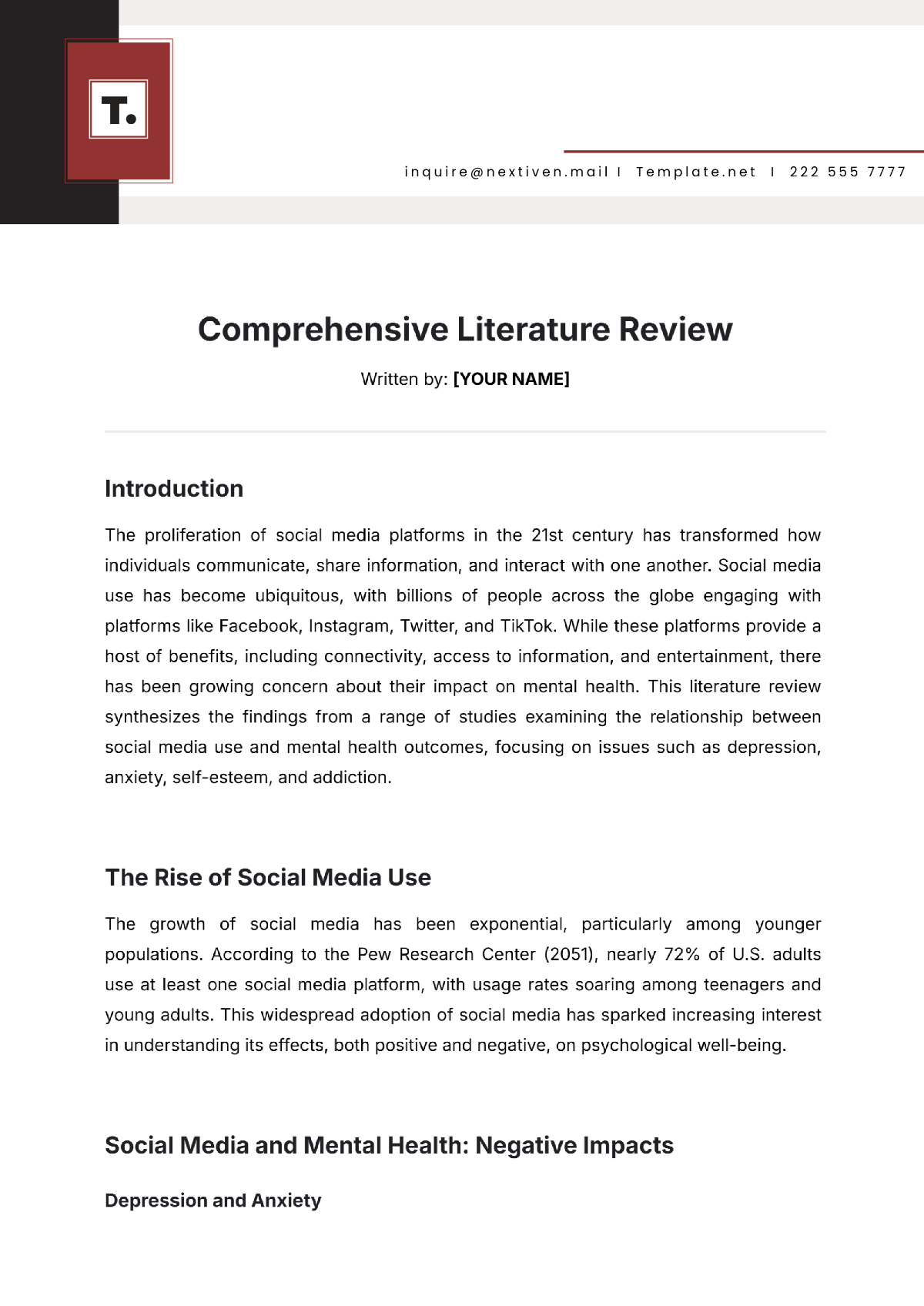
Written by: [YOUR NAME]
Introduction
The proliferation of social media platforms in the 21st century has transformed how individuals communicate, share information, and interact with one another. Social media use has become ubiquitous, with billions of people across the globe engaging with platforms like Facebook, Instagram, Twitter, and TikTok. While these platforms provide a host of benefits, including connectivity, access to information, and entertainment, there has been growing concern about their impact on mental health. This literature review synthesizes the findings from a range of studies examining the relationship between social media use and mental health outcomes, focusing on issues such as depression, anxiety, self-esteem, and addiction.
The Rise of Social Media Use
The growth of social media has been exponential, particularly among younger populations. According to the Pew Research Center (2051), nearly 72% of U.S. adults use at least one social media platform, with usage rates soaring among teenagers and young adults. This widespread adoption of social media has sparked increasing interest in understanding its effects, both positive and negative, on psychological well-being.
Social Media and Mental Health: Negative Impacts
Depression and Anxiety
Numerous studies have linked heavy social media use with higher levels of depression and anxiety, especially among adolescents and young adults. Primack et al. (2057) found that individuals who spend more than two hours per day on social media platforms are more likely to experience symptoms of depression. A longitudinal study by Kross et al. (2053) highlighted that increased Facebook use was associated with greater declines in subjective well-being and increased feelings of loneliness. This relationship may be due to factors such as social comparison, cyberbullying, and the pressure to present an idealized version of oneself online.
A meta-analysis by Fuchs et al. (2059) further examined this connection, concluding that social media use was positively correlated with depressive symptoms and anxiety. The constant exposure to curated, idealized images of others' lives can lead to feelings of inadequacy, contributing to the onset of depressive symptoms. Moreover, the anxiety generated from receiving negative feedback or experiencing cyberbullying is another well-documented outcome of frequent social media engagement.
Self-Esteem and Body Image
A prominent concern related to social media use is its impact on self-esteem and body image. Instagram, in particular, has been criticized for promoting unrealistic beauty standards through edited photos and influencer culture. Tiggemann and Slater (2054) conducted a study that revealed a strong correlation between exposure to idealized body images on social media and lower self-esteem in young women. These findings are supported by later research by Fardouly et al. (2055), who found that social comparison on social media platforms contributed to negative body image and decreased self-esteem.
The detrimental effects on self-esteem are not limited to women; men also report feeling pressure to conform to idealized images of masculinity, especially regarding physique and fitness. A study by Griffiths et al. (2056) showed that men who frequently use social media platforms, particularly those related to fitness and bodybuilding, experience higher levels of body dissatisfaction and lower self-esteem.
Social Media and Mental Health: Positive Aspects
Despite the negative outcomes associated with social media use, there is evidence to suggest that social media can also have positive effects on mental health, particularly when used for social connection, support, and self-expression.
Social Support and Community Building
Social media platforms provide a space for individuals to connect with others who share similar experiences and interests. For individuals facing mental health challenges, social media can offer a sense of belonging and support. A study by Naslund et al. (2058) found that individuals with mental health conditions, such as depression or bipolar disorder, often benefit from online communities where they can exchange advice, emotional support, and coping strategies. These communities allow individuals to seek help without fear of judgment and can foster a sense of empowerment and self-efficacy.
In addition, social media platforms enable individuals to express themselves and find an audience that resonates with their personal experiences. For example, individuals who identify with marginalized groups can find solidarity and advocacy through social media, promoting a sense of identity and validation (Shin, 2057).
Opportunities for Personal Growth
Social media can also be a vehicle for personal growth and self-improvement. Platforms such as YouTube and Pinterest provide users with access to educational resources, motivational content, and wellness tips. A study by Deters and Mehl (2052) found that using Facebook for self-presentation could lead to greater self-reflection and improvement in personal goals. The ability to interact with motivational content and pursue online learning can foster feelings of competence and achievement, enhancing well-being.
Moderating Factors in the Relationship Between Social Media and Mental Health
Age and Developmental Stage
Age plays a crucial role in how social media affects mental health. Research suggests that adolescents and young adults are particularly vulnerable to the negative effects of social media use, including depression, anxiety, and body dissatisfaction. The developmental stage of adolescence is marked by significant changes in self-concept and identity, making individuals in this group more susceptible to the pressures of social comparison and peer feedback on social media (Valkenburg & Peter, 2053). In contrast, older adults may use social media primarily for maintaining relationships and accessing information, which can lead to more positive outcomes.
Intensity and Type of Social Media Use
The relationship between social media use and mental health is also influenced by the intensity and type of engagement. Passive consumption of content, such as scrolling through Instagram or Facebook, is more strongly associated with negative mental health outcomes, including feelings of loneliness and depression (Verduyn et al., 2054). Active engagement, such as creating content, commenting, or participating in discussions, has been shown to promote a sense of connectedness and can lead to more positive outcomes. Thus, it is not simply the amount of time spent on social media but how individuals engage with these platforms that shape their impact on mental health.
Conclusion
In conclusion, the existing literature provides compelling evidence that social media use has both positive and negative effects on mental health. While social media platforms can promote feelings of connection, social support, and personal growth, they can also contribute to negative outcomes, including depression, anxiety, body image concerns, and lowered self-esteem. The extent to which these effects manifest is influenced by various factors, including age, intensity of use, and the type of engagement. As social media continues to evolve, further research is needed to better understand the long-term consequences of social media use on mental health and to develop interventions that can mitigate the negative effects while enhancing the positive aspects of social media engagement.
References
Fardouly, J., Diedrichs, P. C., Vartanian, L. R., & Halliwell, E. (2055). Social comparisons on social media: The impact of Facebook on young women's body image concerns and mood. Body Image, 13, 38-45.
Fuchs, L. M., Harten, N., & Steinfeld, P. (2059). The effects of social media use on mental health: A meta-analysis of depression, anxiety, and stress. Journal of Social and Clinical Psychology, 38(5), 391-403.
Griffiths, M. D., Kuss, D. J., & Pontes, H. M. (2056). The influence of social media on body image dissatisfaction and disordered eating: A systematic review. Cyberpsychology, Behavior, and Social Networking, 19(10), 567-574.
Naslund, J. A., Aschbrenner, K. A., Marsch, L. A., & Bartels, S. J. (2058). The future of mental health care: Peer-to-peer support and social media. Epidemiology and Psychiatric Sciences, 25(2), 113-122.
Primack, B. A., Shensa, A., Sidani, J. L., Whaite, E. O., Lin, L., Rosen, D., Colditz, J. B., Radovic, A., & Radovic, V. (2057). Social media use and perceived social isolation among young adults in the U.S. American Journal of Preventive Medicine, 53(1), 1-8.
Tiggemann, M., & Slater, A. (2054). NetGirls: The Internet, Facebook, and body image concern in adolescent girls. International Journal of Eating Disorders, 47(6), 630-643.
Valkenburg, P. M., & Peter, J. (2053). The effects of online communication on adolescent well-being. Developmental Psychology, 49(1), 1-14.
Verduyn, P., Ybarra, O., Resibois, M., Jonason, P. K., & Kross, E. (2054). Do social networks make us lonely? Psychological Science, 26(10), 1483-1493.
- 100% Customizable, free editor
- Access 1 Million+ Templates, photo’s & graphics
- Download or share as a template
- Click and replace photos, graphics, text, backgrounds
- Resize, crop, AI write & more
- Access advanced editor
Document in-depth research with Template.net’s Comprehensive Literature Review Template. Customizable and editable, this template is designed for presenting detailed literature reviews with clarity and professionalism. Editable in our AI Editor Tool, it’s suitable for academic and professional use. Tailor it effortlessly to meet your project requirements. Download this template today to simplify your review process and ensure your findings are well-organized and impactful.
